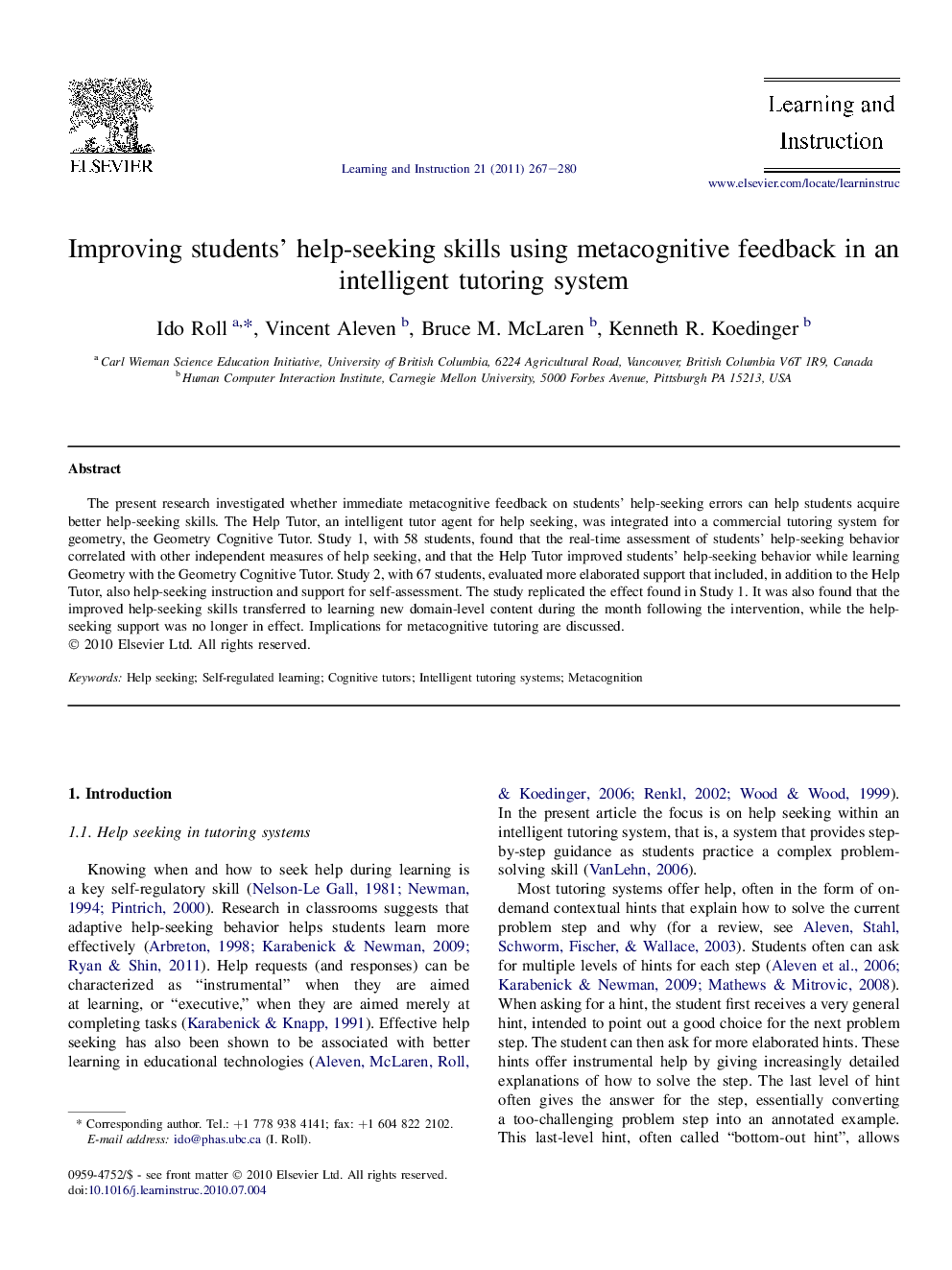| Article ID | Journal | Published Year | Pages | File Type |
|---|---|---|---|---|
| 365762 | Learning and Instruction | 2011 | 14 Pages |
The present research investigated whether immediate metacognitive feedback on students’ help-seeking errors can help students acquire better help-seeking skills. The Help Tutor, an intelligent tutor agent for help seeking, was integrated into a commercial tutoring system for geometry, the Geometry Cognitive Tutor. Study 1, with 58 students, found that the real-time assessment of students’ help-seeking behavior correlated with other independent measures of help seeking, and that the Help Tutor improved students’ help-seeking behavior while learning Geometry with the Geometry Cognitive Tutor. Study 2, with 67 students, evaluated more elaborated support that included, in addition to the Help Tutor, also help-seeking instruction and support for self-assessment. The study replicated the effect found in Study 1. It was also found that the improved help-seeking skills transferred to learning new domain-level content during the month following the intervention, while the help-seeking support was no longer in effect. Implications for metacognitive tutoring are discussed.
Research highlights► A computational model of help seeking was validated using independent measures. ► The model assesses help seeking in a tutoring system unobtrusively in real time. ► Automated and adaptive metacognitive feedback improved help-seeking behaviors. ► The improvement transferred to new instructional units with no metacognitive support.
